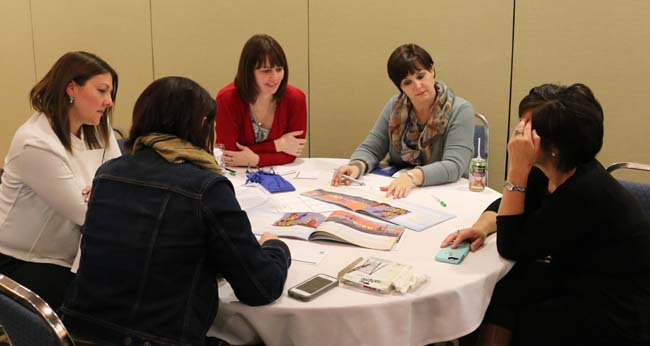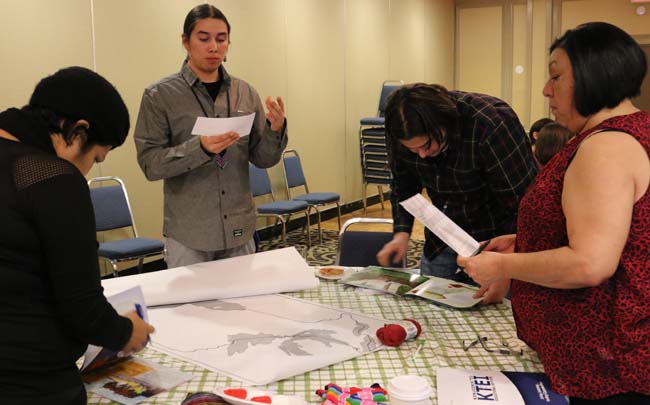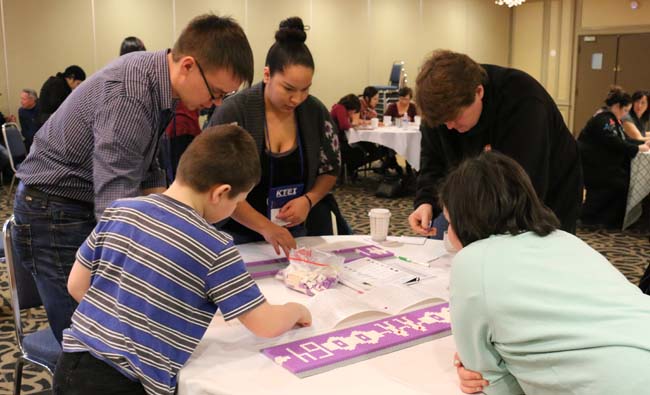Bringing treaties into the classroom



By Marci Becking
SUDBURY – Former teacher and fluent Anishinaabemowin speaker Gloria Oshkabewisens welcomed some 140 educators and principals to the Miigwewin education conference by saying that the sounds of the drum have a rippling effect that makes the drum even more powerful.
Same could be said for the importance of teachers – their impact could inspire a student to go further in life and make long-lasting ripples of their own.
The annual conference, held in Sudbury Jan. 29-30, was hosted by Kenjgewin Teg Educational Institute located on Manitoulin Island. This year’s theme was “Embracing Change…Inspiring Minds” and included workshops on education leadership, laughing yoga and Treaties in the classroom.
M’Chigeeng First Nation citizen Kelly Crawford is an educator who is currently in the PhD Human Studies program at Laurentian University, led the “Treaties in the Classroom” workshop. Participants took part in the interactive session exploring the use of the book “We are all Treaty People” – published by the Union of Ontario Indians in 2011.
The book, which has since sold over 8,000 copies, has been popular among schools all over Ontario.
“The only thing missing was a guide to help teachers incorporate treaty education into the classroom,” says Crawford. “I developed a teacher’s guide that will bring an understanding of the treaty relationships among all students in Grades 1 through 8.”
Last year Crawford brought treaty education to Grade 6 students in North Bay and their reaction is similar to other students in the area.
“They asked me ‘why am I just learning about this now?’” says Crawford.
The “We are all Treaty People” teachers guide is part of an entire resource kit, which includes activity sheets, posters, a DVD, bookmarks and an 800 pieces of LEGO to build a “Treaty of Niagara” replica wampum belt.
Teachers at the conference were thrilled with the LEGO saying that their students would be really excited about building the belt. They were impressed how the LEGO opens the door for all ages as they explore connections in math, social studies and the arts.
Crawford also incorporated various other activities into the workshop that is included in the teacher’s guide including mapping out treaty areas, writing song lyrics, creating a comic strip and relationship art. The goal is for students to connect to the content at a deeper level as they see themselves as having a responsibility in the treaty relationship.
“Discussing the Treaty Relationship in the classroom successfully requires making learning fun, relevant and connected,” says Crawford. “The teacher’s guide includes a variety of teaching methods and instructional strategies that will engage all students in the classroom. Students will ease into the content as they experience ‘We are all Treaty People’ from a holistic perspective.”
The Teacher’s Kit retail for $300 and will be available to schools mid-April. Pre-orders can be placed by calling the Union of Ontario Indians 1-877-702-5200.


